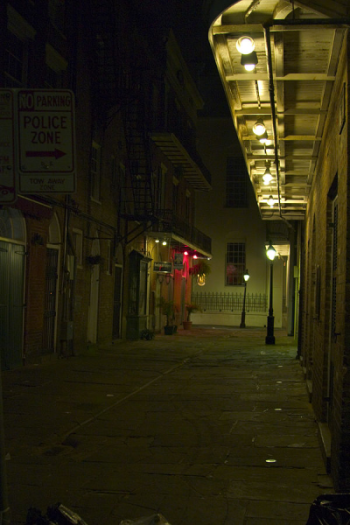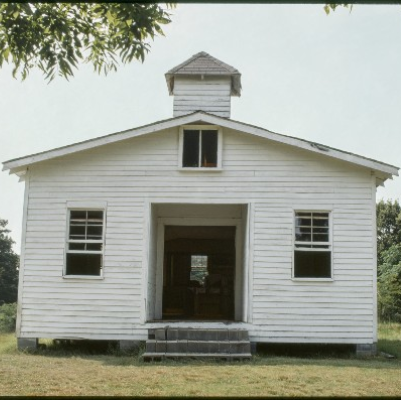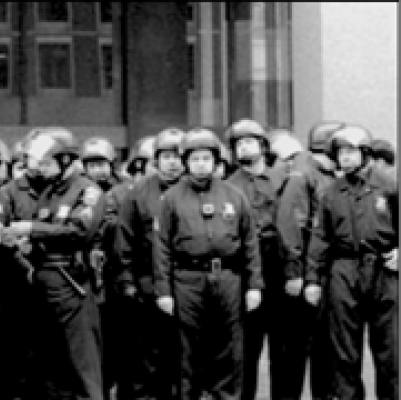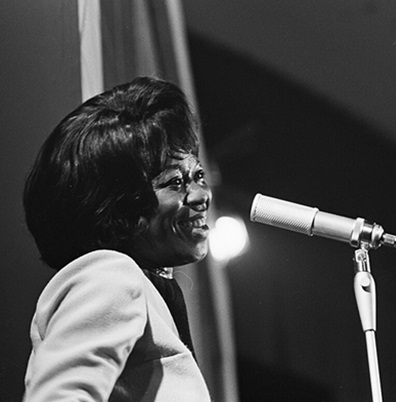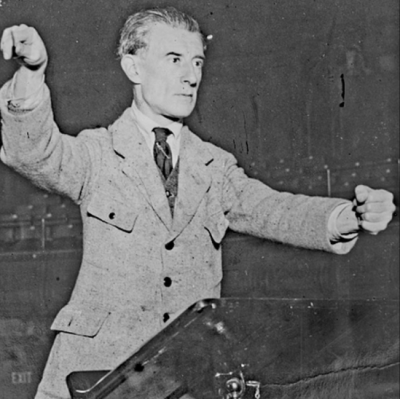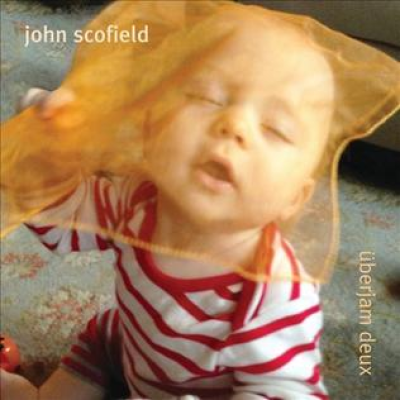.
.
“Lydia,” a story by Allene Nichols, was a short-listed entry in our recently concluded 58th Short Fiction Contest, and is published with the consent of the author.
.
.
___
.
.
No machine-readable author provided. Dand8282 assumed (based on copyright claims)., CC BY-SA 3.0 , via Wikimedia Commons
Cabildo Alley in New Orleans’ French Quarter; 2005
.
.
Lydia
by Allene Nichols
.
…..It was a summer of jazz leaking out through shuttered windows; of breaking glass and rage from the anonymous facades of brick apartments; of winged girls trying to fly from atop the Cathedral of St. Louis; of women trying to take back the night from jugglers and mimes and the men who lurked and looked too long. And through all of this, we walked hand in hand, visitors from a planet where soybean fields bookmarked the horizon and the sweet smell of corn danced across the dusk.
…..Sweet Lydia – never just Lydia in those days – pulled me into a darkened corner and planted kisses on my face and neck. And I, in my honeymooned bliss, swore that I’d rip diamonds from the sky whose beauty couldn’t match that of the beads of sweat on her neck. I’d rip words from the dark corners of my mind, fling them onto the page, and dedicate each one to her.
…..When my small writing grant ran out and rejection letters filled the mailbox, Lydia took a job at a rundown bookstore to pay for those words and maybe, someday, those diamonds. She disappeared every morning as I swam out of blues-tinted dreams and reappeared as I rubbed my aching eyes in the hot glare of the computer screen. She’d float in, her long blonde hair and long legs flowing in the breeze of her smile. She’d kiss me tenderly, the beat of the Jazz joint down the street buzzing through her body and jolting me out of my late afternoon ennui. Then she’d disappear, a fleeting daydream. Soon, the heavy smell of spices and cheap meat would woo me to her side in the kitchen, and she would laugh as I cried and chopped onions. She’d kiss my tears, the heat of her breath on my skin a promise for the coming night.
…..Lydia danced through those nights, swaying to the jazz, humming tunes deep in her throat, undressing herself and me, playing the wanton. And if Lydia was an enchantress, I was her victim, willingly following the curve of her back like a cobra follows the music of the fakir.
…..Late at night, in our tiny apartment overlooking St. Charles Avenue, after we made love, she’d whisper to me about corn and babies and home; would whisper that even ambitious young writers need the language of home. She’d taste the sweat that dripped off of my body and exhale the scent of Midwestern morning dew. I believed then, believed it with the fervor of a religious convert, that she was all of home that I needed.
…..Lydia would fall asleep long before I heard the drunk on the stairs, the key in the lock, the yells, the screams, the beatings.
…..Once, early on, I called the police and earned our neighbor’s enmity.
…..“Mind your own fucking business,” she hissed in the hall, one eye swollen closed and nose squashed against her face. She dropped the basket of laundry that she held, and I bent to help. But she gave me a ferocious look and lurched at me. Her bleached blonde hair, thin and limp from the humidity, slashed across her face.
.
***
.
…..Summer ended slowly, the way summers do in New Orleans. I started on my great work, the novel that would make me a household name and bring Lydia, my muse, all the diamonds she could desire. But when I walked past the cathedral, St. Louis seemed to frown on me, and my words turned to ashes. I couldn’t write. So I made friends at the local pub and began drinking, in the style of Hemingway, I told myself. Never too much. Just enough to hold off for a few hours the desperation I felt when I stared at the blank computer screen and no words came. I would stumble in late, type desperately until I was ready to collapse from fatigue, then fall into bed and kiss Sweet Lydia’s hair as she slept, only to awaken in the morning, tongue thick in my mouth, to the discovery that what I had typed in my inebriated state was worthless.
…..I was always at home when Lydia returned from work. I was a faithful drunk. A routine drunk. But Lydia’s smile at the end of the day was thinner. Many times, she started to speak, as if she were about to divulge her deepest grief, her most heartfelt needs, but she fell silent. I dismissed this as womanly nonsense, a game to goad me from my work and into her arms. Sometimes I spoke sharply to her. She’d pull away and sulk like a puppy denied its favorite toy.
…..Finally, St. Louis smiled on me again and I began to write. The pages of my novel started to accumulate as quickly as the pile of bills that so distressed Lydia. She hinted gently that I should find work. It pained me that Sweet Lydia could envision me handing other people their food or cleaning up their garbage. I was a promising young writer who’d been written up time and again in the local paper. I’d had short stories published in national magazines. I was making art. Again, Lydia seemed on the verge of pouring out her heart, but she turned away.
…..One day, Lydia came in late and didn’t kiss me. I was so deeply engrossed in my work that I didn’t notice at first; didn’t notice the white greasepaint streaked across her face or the silence with which she cooked the evening meal. It’s a fault of mine that I lose myself in my work. When I did notice, she was preparing to go out again.
…..She didn’t kiss me the next day, either. And I noticed. Caught the glint of a tear as she hurried toward the kitchen. Saw the white greasepaint glaring defiantly from her wrist. When I asked her about it, she quickly wiped the paint away and murmured something about a customer at work. I grabbed her wrist and hissed that the customers had better keep their hands off of her. I was too incensed to wait for dinner and headed straight for the pub, where Jerry and Dave did a walloping impression of a woman whining because she wasn’t getting enough attention. In the laughter and the beer that followed, I was able to forget the look on Lydia’s face when I seized her wrist. But when I got home, Lydia wasn’t there.
…..She was there when I woke up, busily getting ready for work. I shook my head. Perhaps I’d imagined her absence. Perhaps she’d been in the kitchen, having a late night snack. I smiled at her and drifted back to sleep until mid-afternoon, when I followed St. Louis and the spirit of Lydia deep into the core of my novel.
…..Again, she failed to kiss me when she came home. There was no hint of greasepaint this time, but the smell of it lingered in her hair. Again, she would divulge nothing regarding her activities. She did confess that she’d taken a night job to pay the bills. A waitress job. I felt myself tense, waiting for her to criticize the amount of money I spent on beer and pool at the pub. Waiting for those awful words that would tell me she no longer believed in me. But she didn’t say them. She ate quietly and left.
…..I felt that the smell of greasepaint must be a betrayal. That she must be spending her nights with a mime, listening to his silences the way she once listened to my words. So I did a stupid, craven, cowardly thing. I followed her. I spied on my wife.
.
***
.
…..Perhaps we should never know too much about love and about the extremes to which love drives us. Perhaps we should take a small portion, like a child whose parents fill his plate, and be satisfied with that. Perhaps the demons that drive us to love also drive us to the madness of obsession.
.
***
.
…..I was a block behind Lydia, watching her dancer’s walk as she swept down the street, past the cathedral, and into the labyrinth of streets and shops behind it. I almost lost her in the dark, for these were daytime haunts, cold and deserted now. She kept looking behind her, as if she was aware of me, heard my footsteps. I’d slip behind a pillar or into the shadows that lined the fronts of the shops. And she would move on.
…..Shortly, she found her way onto Bourbon Street, as loud and gaudy as the intervening streets had been silent and pale. I stopped for a moment, stunned, then trailed her through the drunken, screaming crowd. I thought I had lost her more than once, but always some man would turn his head appreciatively, and I’d know that he must be looking at Lydia.
…..Lydia stopped at the front of a bar, looked around, and didn’t see me because I ducked back into the crowd. She went in. From the street, I could see a woman, naked and glassy-eyed, gyrating on a wooden stage. Was this where she met her lover? At some seedy strip joint? I followed her in.
…..The music assaulted me. The smell of beer overwhelmed me. The dark closed in on me. I stumbled against the stage, then righted myself. Someone made a crude joke. I lurched to the back of the room and took a seat.
…..At first, I didn’t see Lydia, though my eyes adjusted and I searched the dark corners of the room. Then a roar went up from the assembled frat boys and drunk tourists, and I glanced at the stage. At first I didn’t recognize it as Lydia. She was so tawdry, so naked. Not naked like I’d seen her. Not sensual. She gyrated madly to the heavy beat. Her breasts flopped frantically against her chest. She looked entranced, insane. And the crowd loved her.
…..Shame iced through me. Anger blanketed my vision. I wanted only to bolt, to forget that I’d ever seen her like this. But my sluggish brain caught my anxious body and held it to the seat. I had to know about the greasepaint. Was it part of the act? Or was there an even darker secret behind those strange, foreign eyes?
…..I sat there for four hours as the music drilled into my brain and the stench of beer curdled my stomach. So, though I was missing my nightly beer with the boys, I drank nothing. I watched Lydia onstage and Lydia offstage. Lydia allowing men to tuck money in her g-string. Lydia whispering to another girl. Lydia slipping into the dressing room. Never once did Lydia look in my direction. Never once did I have to duck or throw a newspaper in front of my face or perform any other sitcom schtick.
…..Finally, at midnight, Lydia’s shift was over and she slipped out the door. Again, I followed her. She didn’t head back to our apartment, but down a fairly active side street, where street performers rested against doors or rehearsed in the street.
…..About a hundred yards down the street, a mime stepped in front of Lydia. She tried to go around him, but he mimicked every move she made. She stopped. He made a sad face and wiped away imaginary tears. She laughed. She laughed the way she had laughed when we were first in New Orleans, when we couldn’t resist each other.
…..A juggler watched the direction of my eyes, then stepped in front of me.
…..“You don’t belong here.”
…..Two more jugglers joined him. I turned and left before Lydia could see me. I bought a six pack of beer on the way home.
…..I spent the next two hours pacing, drinking, nursing my anger. How could she do this to me? How could she endanger the writing career on which I worked so long? How could she betray my dream?
…..When she finally entered the apartment, I screamed at her, expected her usual meek responses. But Lydia turned into a hellcat. She screamed back at me, denied my accusations. She admitted dancing, but denied that she enjoyed it. She admitted that she met a mime, but denied making love to him. She didn’t deny that she’d betrayed my dream, but she accused me of betraying hers.
…..Our screams rose, each scream topping the last. Our fury increased, wave after wave striking the walls, until she screamed the words that I couldn’t stand to hear.
…..“You’re a bum, not a writer!”
…..And I did what I’d sworn to her father and to God that I’d never do. I clenched my hand into a fist and punched her.
…..If I’d expected her to crumble, I’d have been mistaken. She reeled a bit from the shock, then she stood up straight, turned, and walked out.
.
***
.
…..Through that long winter, I walked the streets of New Orleans, coat pulled tight against the cold and incessant drizzle. I went to the bar where Lydia had danced, but nobody knew where she had gone. I stared into the faces of mimes, the few that I could find, hoping to see the face that had last made Lydia laugh. Hoping for answers to the questions that ached inside me.
…..I took a job waiting tables. I gave up drinking. I paid the bills. And I wrote, desperately, hopelessly, seeking neither justification nor solace. When spring finally came, I finished my novel and sent it to a publisher. To my surprise, the publisher quickly accepted it. I had lived up to my promise.
…..The day I got the advance copy of the book was exactly two years from the day Lydia and I first came to New Orleans. I left the book in my apartment and went to the French Quarter to eat beignets and toast St. Louis. As I sat in the outdoor café, sweat forming along the back of my neck, someone called my name.
…..It was John, an old friend from home. He sat and we talked for a minute. He was in town on business. Yes, he’d seen Lydia. She was dating the farm boy she’d dated in high school. She was a popular dancing partner at the town dances. She worked at the local bookstore and she was learning to run the place. She wanted to buy it from Widow Matthews. She was happy.
…..John couldn’t stay long. We talked for a few minutes and he left to attend his convention. I didn’t tell him about the novel. It didn’t seem that important.
.
.
___
.
.

Allene Nichols lives in Columbus, Mississippi, where she teaches English and teacher’s education classes at the Mississippi University for Women. In addition to creative writing and teaching, she is passionate about photography, backpacking, and kayaking. Her blog is at https://allenen.wordpress.com/author/allenen/. “Lydia” draws from her memories of growing up in the Midwest and her many visits to New Orleans.
.
.
Listen to the 1996 recording of “Bess You Is My Woman,” with Ellis Marsalis and Branford Marsalis
.
.
___
.
.
Click here to read “Mouth Organ” by Emily Jon Tobias, the winning story in the 58th Jerry Jazz Musician Short Fiction Contest
.
Click here for information about the upcoming Jerry Jazz Musician Short Fiction Contest
.
.
.




